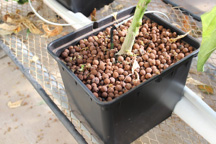On the topic of autos earlier... from a breeding perspective, the nature of autos removes most of the valuable breeding tools.
In photo breeding you have multiple ways to preserve both parents while producing seed and flower. It gives the ability to test the end product, and steer breeding based on the progeny. It also allows one to back cross to reintroduce traits if all the genetics are preserved. This allows lines to be worked, perfected, reworked, and preserved. All of that pays off. Autos can be bred with pedigree, but very, very few people are taking the steps to do it right.
I understand why most people don't care about any of that, but its the main reason I stay away from autos.
As for using light poisoning to make seed, I would advise against it. You can take a clone, use colloidal silver on it to produce female pollen, let it pollinate the other ladies, and you're good to smoke them and collect seed. Just my opinion. I'm all for experimentation, so if you do try the light method, please share the results!

phscales.com




